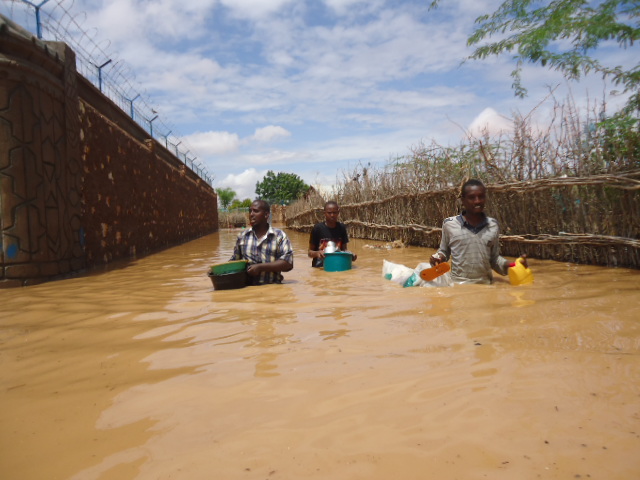World Bank approves $155 million to support Senegal in reducing flood risks
Senegal is highly vulnerable to floods and droughts, as well as coastal erosion and land degradation, which can jeopardize development gains and livelihoods, affect productivity, and threaten social stability.

- Country:
- Senegal
The World Bank’s Board of Executive Directors approved on Friday a $155 million financing to support Senegal to reduce flood risks in peri-urban areas of Dakar and improve capacity for integrated urban flood risk planning and management for selected cities in the country. Senegal is highly vulnerable to floods and droughts, as well as coastal erosion and land degradation, which can jeopardize development gains and livelihoods, affect productivity, and threaten social stability.
“The Government of Senegal welcomes the approval of the Stormwater Management and Climate Change Adaptation Project 2 (PROGEP 2) by our main partner, the World Bank. This support will strengthen Senegal's efforts in the fight against flooding in the Keur Massar area and other regions of the country. This project will impact more than 120,000 people and allow for the development of the area concerned," declared Oumar Guèye, Ministry of Territorial Development and Land Management.
The country was heavily affected by urban floods in 2010, 2012, and most recently in 2020 due to the rapid urbanization and city extension in peri-urban areas with insufficient stormwater management systems, causing water to inundate roads and properties.
“We are very confident that the expected results of this new project will be achieved given the strong foundation of PROGEP 1 in which almost 1.3 million people benefited from flood protection in the peri-urban areas of Dakar. It is important to highlight that the risks and impacts of flooding have been exacerbated by rapid urbanization, obstructed drainage, and rising groundwater levels. In this regard, we are thrilled with the opportunity to work with the Government and all other stakeholders to improve integrated flood risk management,” said Nathan Belete, World Bank Country Director for Senegal.
“Citizen engagement will be a key pillar mainstreamed throughout the project implementation by establishing the flood management committees (COLIGEP) in the implementation zones, indicated Isabelle Celine Kane and Mouhamed Fadel Ndaw, World Bank Task Team Leaders. “The COLIGEP and civil society participation experiences during the PROGEP 1 clearly demonstrated that sustainable engagement and changes in public behaviours can be achieved only if community participation, as well as communication and raising awareness activities, are fully integrated into the project design and implementation. PROGEP2 will consolidate and extend such positive experience in areas newly identified,” they added.
For this 5-year project (2021-2026), a robust Grievance Redress Mechanism will be created to allow communities and individuals who believe that they are adversely affected by the PROGEP2 to submit complaints that will be promptly reviewed in order to address project-related concerns.
- READ MORE ON:
- World Bank
- flood
- Senegal
- Oumar Guèye
ALSO READ
World Bank Unveils 7th CEMAC Economic Barometer; Call for Diversification, Sustainable Forestry, and Economic Resilience
World Bank Pledges $12 Million to Aid Earthquake-Struck Vanuatu
World Bank and Bangladesh Commit $900M for Climate Resilience and Inclusive Growth
World Bank Group Scorecard FY24: A Blueprint for Inclusive Growth and Climate Resilience
World Bank Provides $3.5M for Uzbekistan’s Solar Power Project in Khorezm Region










